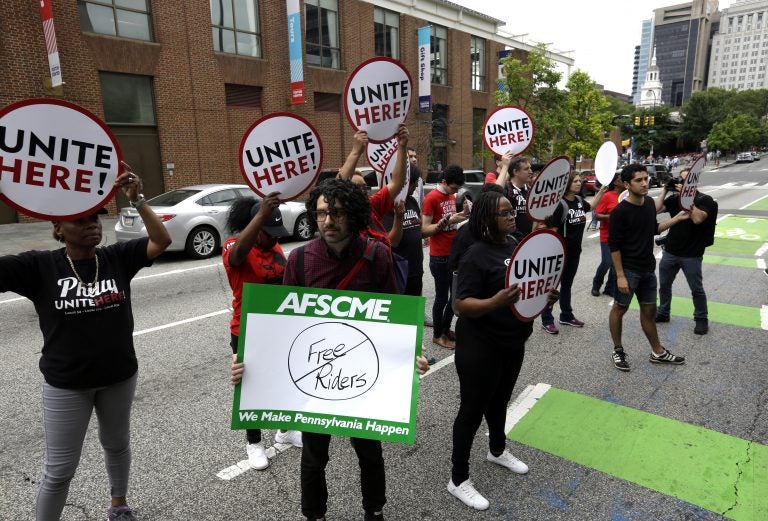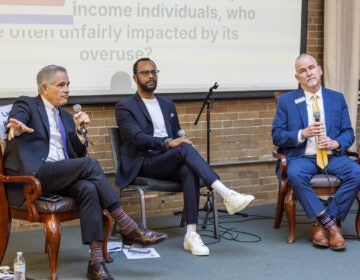Tough sell for collective bargaining-boosting bills, but unions see hope
In the wake of a Supreme Court decision halting unions' ability to compel public sector employees to pay fees, pro-union state lawmakers are trying to come up with a rebuttal.

Union activists stand in the road as they participate in a protest by the Philadelphia Council AFL-CIO Wednesday June 27, 2018 in Philadelphia. The protesters denounced Wednesday's U.S. Supreme Court ruling that government workers can't be forced to contribute to labor unions that represent them in collective bargaining, dealing a serious financial blow to organized labor. (AP Photo/Jacqueline Larma)
In the wake of a Supreme Court decision halting unions’ ability to compel public sector employees to pay fees, pro-union state lawmakers are trying to come up with a rebuttal.
So far, House and Senate Democrats have launched bills that would let public sector workers form unions by simple majorities–an easier system than the one in place now.
Despite a few House Republicans signing on, GOP leaders in the chamber don’t support the measure. A spokeswoman for the Senate said they haven’t reviewed it.
Steve Catanese, president of SEIU Local 668–one of the two biggest unions representing public sector workers in Pennsylvania–said making collective bargaining easier is a long game.
In the meantime, though, he said he’s encouraged by an uptick in people signing on to the union post-Supreme Court ruling.
“We had a few dozen signups, and it was a lot of people who were previously Fair Share,” he said. “Now that that’s not an option they didn’t want to be a free rider, so they felt like hey, I should sign up to do my part.”
The numbers aren’t final, but Catanese said Local 668 has seen at least 100 signups in recent weeks.
Before the Janus ruling, Local 668 and AFSCME–the other major state worker union–were getting about $6.5 million dollars in annual compulsory fees, or so-called Fair Share fees, from almost 19,000 workers.
WHYY is your source for fact-based, in-depth journalism and information. As a nonprofit organization, we rely on financial support from readers like you. Please give today.





